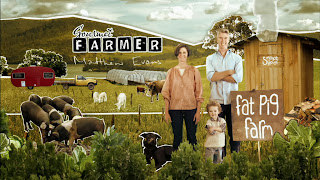 |
| The first motor car designed by Carl Benz. |
As our life has evolved and progressed alongside technologies we have taken to throwing those products over our shoulder until the recent 20 years of second thought. Though it is not a habit that has a reception of self responsibility attached to it, not only by us the user - consumer, but those that are the manufacturers, suppliers and manufacturers of new habits.
Understandably, being allowed to manufacture with the belief that we live on a planet with a never ending supply to fuel our cars, planes and lifestyle why should we think about our impacts.
 |
| source; www.greenerideal.com |
But as our oceans become polluted by micro plastics, not the one's used in
beauty products, the by product of plastic bottles (Australians alone use 2 billion bottles per year with only half ended up in land fill) and plastic bags breaking down from swilling around in the currents of the ocean. As birds, plankton and other marine life can not distinguish between micro plastics and their real diet, resulting a modern problem occurring but not exclusively on Lord Howe Island. This man made product is affecting
Lord Howe Island's native birds as they are dying en masse, a fact resulting in a study by biologists to inquire why plastics were turning up inland on the island. Dead baby native birds were found to be filled with these micro plastics as well as being found washed up on the shore line all over the Island.
 |
| source; www.greenerideal.com |
Though our footprint via the motor vehicle is competing parallel level of disruption. The impact of the motor vehicle invented by Carl Benz in 1885, though promoted by his wife very passionately, is growing as our drive for oil has created wars, environmental disasters, political power struggles and corruption. To connect these dots, makes you wonder on whether the opportunity cost is at a tipping point of questioning which way do we really want to go with this. Bringing this to the fore is issues with our ocean and the danger oil and gas exploration causes. One place is a unique piece of ocean off the Albany coast of WA that is a feeding and breeding ground for an insane amount of wildlife that has been ear marked for gas and oil exploration. David Riggs documentary that is airing on ABC1 7.30pm 3/11/2013
Watch the Doco here goes into not only the habitat but also its future.
 |
| Albatross Chick (wikipedia) |
So in the effort to make our lives easier we have created a wake of political and social maelstrom as we see our impact on the environment. This consideration is no longer for eco warriors of extremists but every day people who make choices with their options to buy electric or diesel cars, or use bikes. To use boxes and enviro bags for shopping and glass bottles for water, hell not even buying bottled water anymore. The fact we resisted such an introduction of something so ridiculous, bottled water - something seen to be European not Australian, into our every day lives it has left a bigger footprint than we could have ever considered.
But it isn't only the consumer that needs to consider their impact, it is the producers who need to take responsible for their impact on earth. The Gulf of Mexico oil spill happened because in it's building they failed to test the cement to make sure it had set properly, a test that would have cost $20k+.
 |
| Gulf of Mexico Oil Spill |
|
 |
| Chad Nelson; Surf Rider |
|
|























